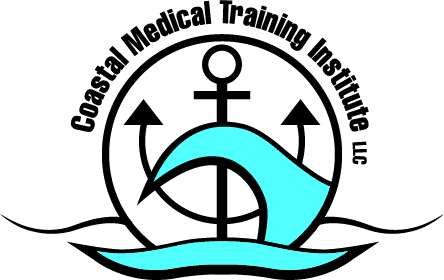
What Can Certification Do for Me?
Certificate and Certification
Understanding the Difference
Credentials can open up a world of career possibilities, enabling professionals to stand out among their peers and make strides in their industry. Indeed, certifications and licenses are proof that one is experienced and qualified to take on particular roles within the field. Moreover, these credentials help individuals stay informed of current developments and advances in their respective fields as many require ongoing training and education. As a result, professionals with credentials can keep their skills up-to-date and be one step ahead of the competition. With certifications and licenses, individuals can prove to potential employers that they are dedicated to their industry and have the knowledge necessary to excel in whatever role they may fill.
Graduates of education and training programs receive a Certificate of Completion, which is proof that they have achieved the necessary knowledge to successfully pass the program assessments. EDU Institutions make sure students understand all learning material by testing them on it throughout the course. This ensures that each student has built up a strong foundation of essential Knowledge, Skills, and Abilities (KSAs) required in their new dental, health, or medical role. With this certificate, employers can be certain that the individual is capable of performing the job duties and has the necessary skills for success. Completing a training program is an impressive accomplishment that sets you up for success in your new career!
Successful completion of the credentialing examination is a meaningful accomplishment and marks an important benchmark in any individual’s career. Becoming certified demonstrates commitment to professional development, knowledge, and expertise in the field. Individuals who earn their certification will be able to access new opportunities for growth through higher wages, increased job stability, and more recognition from employers. Certification is a way to set oneself apart from their peers, and can be especially beneficial in competitive job markets. With their certification, individuals are now well-equipped to tackle the challenges of their profession – and make a lasting impact!
The Certifying Agency’s rigorous standards ensure that those who have earned their certification have the knowledge, skills and abilities to effectively undertake a job role in the field. The journey of studying for and passing the credentialing examination is no small feat, but it can be extremely rewarding. Earning certification gives individuals a sense of pride and accomplishment – and the recognition of being a certified professional. With this certification, individuals can now confidently embark on their career paths and make an impact in their profession!
Through meeting the Certifying Agency’s requirements, individuals have taken an important step forward in reaching their goals. Earning a credential is the first step.
A certificate is an excellent way to demonstrate the knowledge and skills acquired during the academic journey. It is widely accepted as proof of mastery of a particular subject or topic, and provides credentials that could be used to pursue further education or in job applications. On the other hand, a certification serves as evidence of professional competence in specific fields of work. It is widely accepted as a measure of one’s expertise and ability to perform specific tasks in the workforce, giving those with certifications an advantage over non-certified peers. With either a certificate or certification, individuals can enjoy increased career prospects and greater earning potential. So make sure you take the time to get certified or obtain a certificate – it will be worth it in the long run!
By investing in your education, you will be setting yourself up for success and increased opportunities. A certificate or certification can help you stand out from the competition, build credibility, and open doors to better career prospects. So don’t wait – start your journey towards a brighter future today!
Certifications are generally issued by national organizations and are closely standardized. Meaning, that healthcare employers may be unfamiliar with a candidate’s specific phlebotomy training course, though they will instantly credit a phlebotomy technician certification. Not all certification companies are considered valued. The only companies that CMTI uses are 100% legitimate and credentialed members of NCCA see link below NCCA (credentialingexcellence.org)
Certifications are essential to many industries and have become a valuable asset for professionals in these fields. Obtaining certifications can demonstrate expertise, knowledge, and commitment to acquiring the highest standards of practice within the industry. For some certifications, such as medical or engineering-related professions, the process can be notoriously difficult and require extensive preparation. It is important to distinguish between certification and licensing. Licensing is done through a state governing body, while certifications can be obtained from certifying companies such as AMT or NHA. These two certifying bodies offer the most sought-after certifications in the industry. Obtaining industry-recognized credentials can open up doors for career advancement and increase earning potential. With the right dedication and preparation, professionals in any industry can benefit from having the right certifications. Certifications have come to be seen as a sign of credibility and authority, so they are an invaluable asset in any field.
Licensing and Certification requirements are not the same in every state and may include educational testing, and experiential requirements beyond those offered in Coastal Medical Training’s entry-level courses. Most states do not require any formal education for entry-level Dental Assisting or Medical Assisting.
Benefits of Certification
- Employer Trust
- Enhanced academic performance
- Enhanced credibility
- Improved reputation
- Increased confidence
- Increased earning power, higher wages
- Increased marketability & Job Attainment
- Respect from peers
- Validation of knowledge







